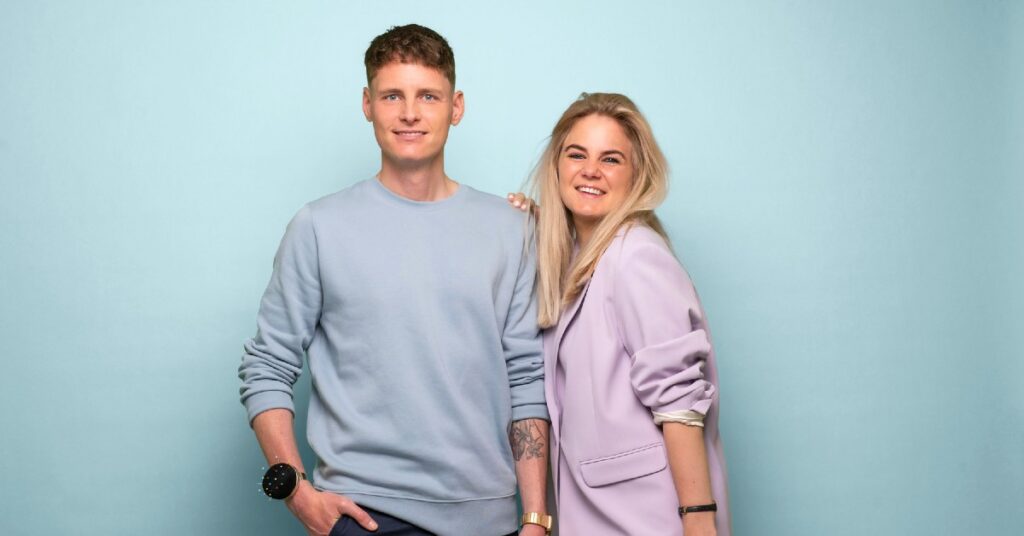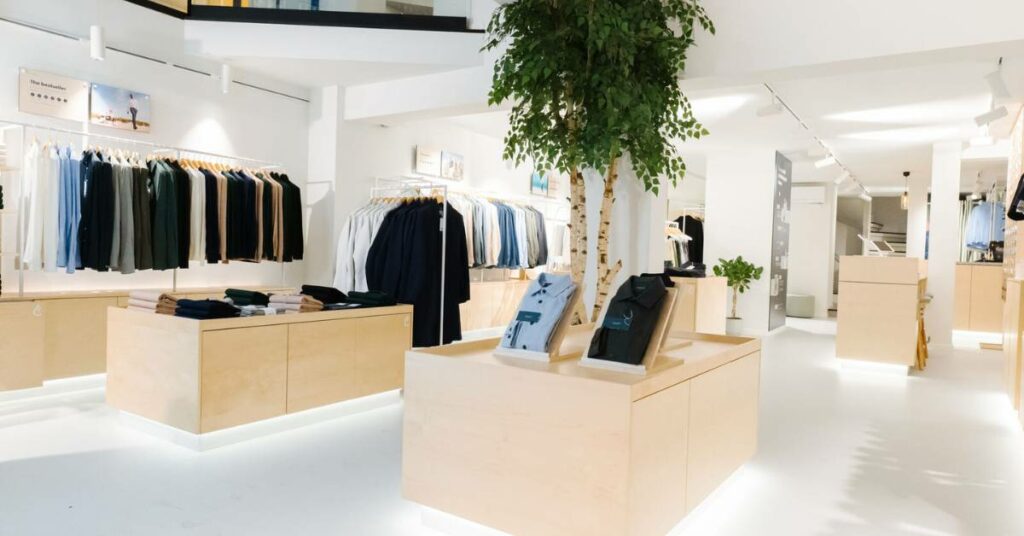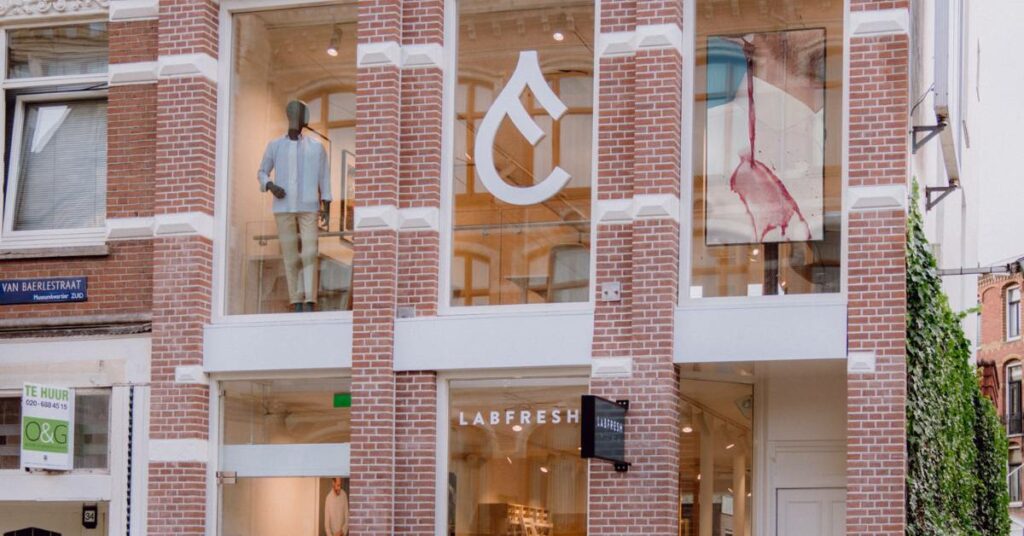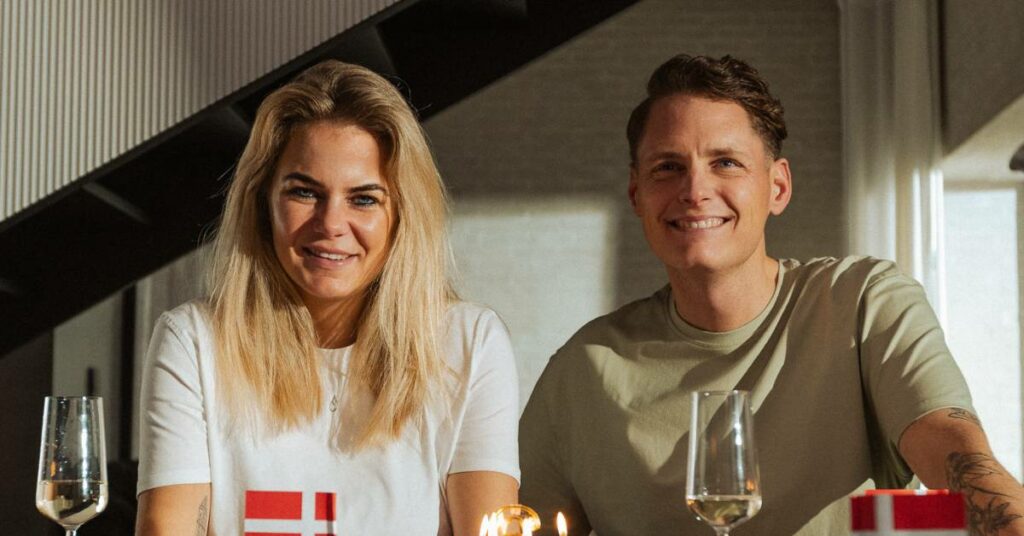Fashion industry might not come to your mind when it comes to global carbon emission. But fashion today accounts for up to 10 per cent of global carbon dioxide output.
While startups like The Next Closet are trying to create a circular fashion economy, there are others like Labfresh advocating for less production of textiles as the only real solution.
Its co-founder Kasper Brandi Petersen, who admits to not being a fashionista, had sold his first startup, a personal shopping service for men called The Cloakroom, to its German competitor.
Soon after that, he found himself buying all sorts of “wildly innovative sportswear.”
These sportswear made him wonder if there was a way to add the type of tech seen in sportswear to normal everyday clothing and the idea became Labfresh, which Brandi Petersen co-founded with his wife and co-founder Lotte Vink.
Kickstarter

After deciding to bring sportswear tech to everyday clothing, Brandi Petersen says they did a lot of desk research and LinkedIn outreach, which led them to French scientists who had a patent for stain, odour, and wrinkle free fabric.
“We made a deal with them and soon launched it on Kickstarter as a crowdfunding project,” he says.
At first, they only had one prototype and they shot a video of a white shirt repelling red wine immediately with some friends in their apartment.
The clip went viral and 1,164 backers pledged €150,646. Labfresh sold its stain, odour, and wrinkle free shirts in 42 countries during the first 30 days of being a business.
“We felt like the luckiest entrepreneurs in the world,” remembers Brandi Petersen.
He also remembers the ridiculous amount of prototyping required for them to become successful with an average prototype taking six weeks to develop.
It took the startup 22 iterations and two years to bring Labfresh pants to market, further illustrating the difficulty building products with complex supply chains and the need to source different materials.
Most durable clothing

When asked for the real solution to the emission challenge facing the textile and fashion industry, Brandi Petersen says we all need “to buy less, wash it less, and wear more.”
This hits at the root of fast fashion, which has led to 60 per cent more fashion items being consumed compared to 15 years ago but being used half as long.
Labfresh, our startup of the month, wants to focus on creating an industry where less textile is produced and the Amsterdam-based startup sees its products as a start.
The startup is seeing its users wear Labfresh shirts and t-shirts for 3.6 days between washes.
“The lifetime of a garment is measured in how many washes it can handle before it becomes unwearable,” says Brandi Petersen.
He adds, “Our mission is to create the most durable clothing in the world, those pieces you have in your closet for 10 years and keep using over and over again.”
Even though Labfresh uses recycled materials, tencel, and Bluesign or GOTS certified cotton, Brandi Petersen says the impact of using such materials is tiny and real impact will come only when the unsustainable consumption patterns of global consumers changes.
“There is no way selling t-shirts for €8 can ever be sustainable,” he exclaims.
Small and sustainable

At the time of writing, Labfresh is a small business with only 30 employees where Vink runs the company with 27 out of 28 employees reporting to her while Brandi Petersen focuses on growth and innovation.
The startup has also structured itself in such a way that 26 per cent of the company is owned by its customers via crowdfunding.
This small and connected business model, Brandi Petersen says, has allowed them to communicate better with their customers, who are aware of the issues facing the fashion industry and are conscious about buying less.
“The problem is that there is so much greenwashing going on, it’s impossible for a normal consumer to differentiate between good and bad,” he says.
Is there a solution? He recommends the Netherlands and other countries should learn from Denmark which has imposed big fines on fashion retailers like H&M for their sustainability claims.
Speaking to Brandi Petersen makes one thing very clear, the startup is vehemently against the idea of creating trends.
In a way that would be dubbed as anti-fashion, but this focus on building only 5 or 6 products, and that too for men, allows the company to obsess about quality to an extreme degree.
“We make few products and only for men because it enables us to pour all our heart and resources,” says Brandi Petersen.
This certainly helps build a sustainable business model but its co-founders are quick to point out that they have created a supply chain where the suppliers need to follow their instructions “100 per cent to the letter” to avoid wastage and production damage.
Labfresh has 78 per cent of its production in Italy, Portugal, and Switzerland but the startup is slowly moving some fabric production to Taiwanese and Chinese suppliers to stay innovative.
Crowdfunding over venture capital

Labfresh is not only on a quest to make people buy less clothes and wear them for longer but it is also a case study on business ownership.
The startup got off the ground through funding from MIT and WBSO for its feasibility studies and as they successfully developed the products, the co-founders agreed to never take any venture capital.
This, Brandi Petersen says, was a decision based on his experience from the first startup where he says they burned through €3M way too fast while also reaching €10M in revenue.
“Being dependent on raising new money every 12-24 months was a horrible feeling to me,” he says, before adding, “for Labfresh, we agreed to only raise from friends, angels, and customers.”
Since raising a seed fund of 1.5M Danish Krone in 2018, the startup has raised funding only through community-based crowdfunding.
Brandi Petersen says their initial funding was mainly to support innovative product development and build the supply chain.
He adds that the company has been profitable and didn’t plan to raise any additional funding but sold 10 per cent of the company to 817 customers for €1.3M in August to optimise the supply chain and open more flagship stores.
The startup has raised funding through seven crowdfunding rounds so far and plans to raise future funding through its community as well.
While seasoned investors might disagree with what Brandi Petersen and Vink are doing, the co-founders of Labfresh are certain they have the right strategy in place.
It is very rare to see entrepreneurs accept their failure and Brandi Petersen says they failed at creating a scalable supply chain.
He says making fabrics in Italy and Portugal is great but the supply chain there does not meet their capacity requirement leading to some core styles being sold out too often.
“This is a bad experience for the customers and we plan to fix it with this round by moving to bigger suppliers and having higher levels of raw material in stock,” he adds.
Brandi Petersen is all about conviction. He wants to fix the supply chain, open 3 to 5 new flagship stores, launch in Germany and the UK, and raise money only if the business model works.
While this conviction also applies to e-commerce, he has come around to see retail stores as major profit drivers.
Labfresh is a classic story of a viral product achieving success in a market open to disruption. As it prepares to scale its supply chain, expand to the UK and Germany, Brandi Petersen dreams about having a top athlete invest in the brand.
Read the orginal article: https://siliconcanals.com/news/startups/labfresh-amsterdam-kasper-petersen-fashion-sustainability/


